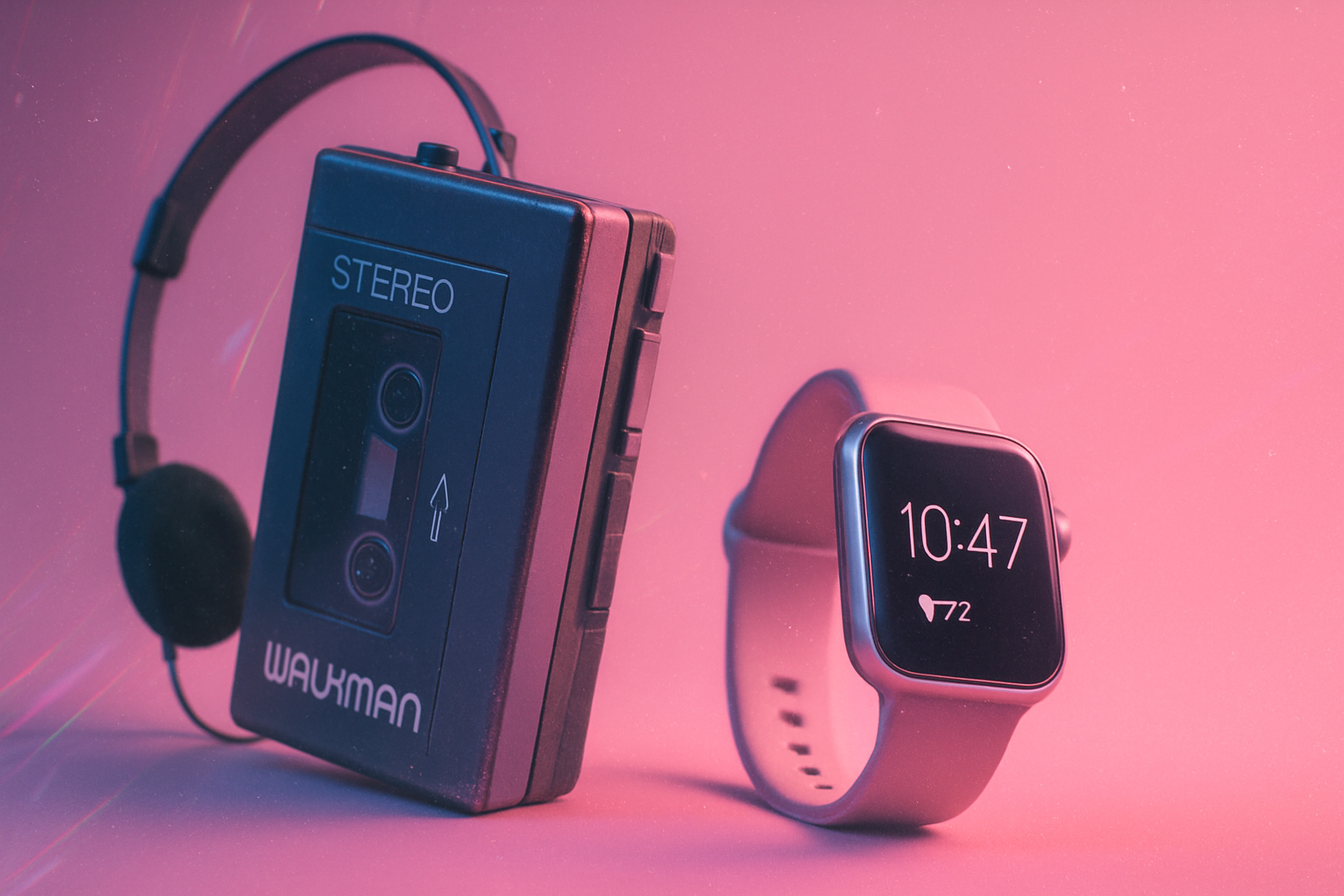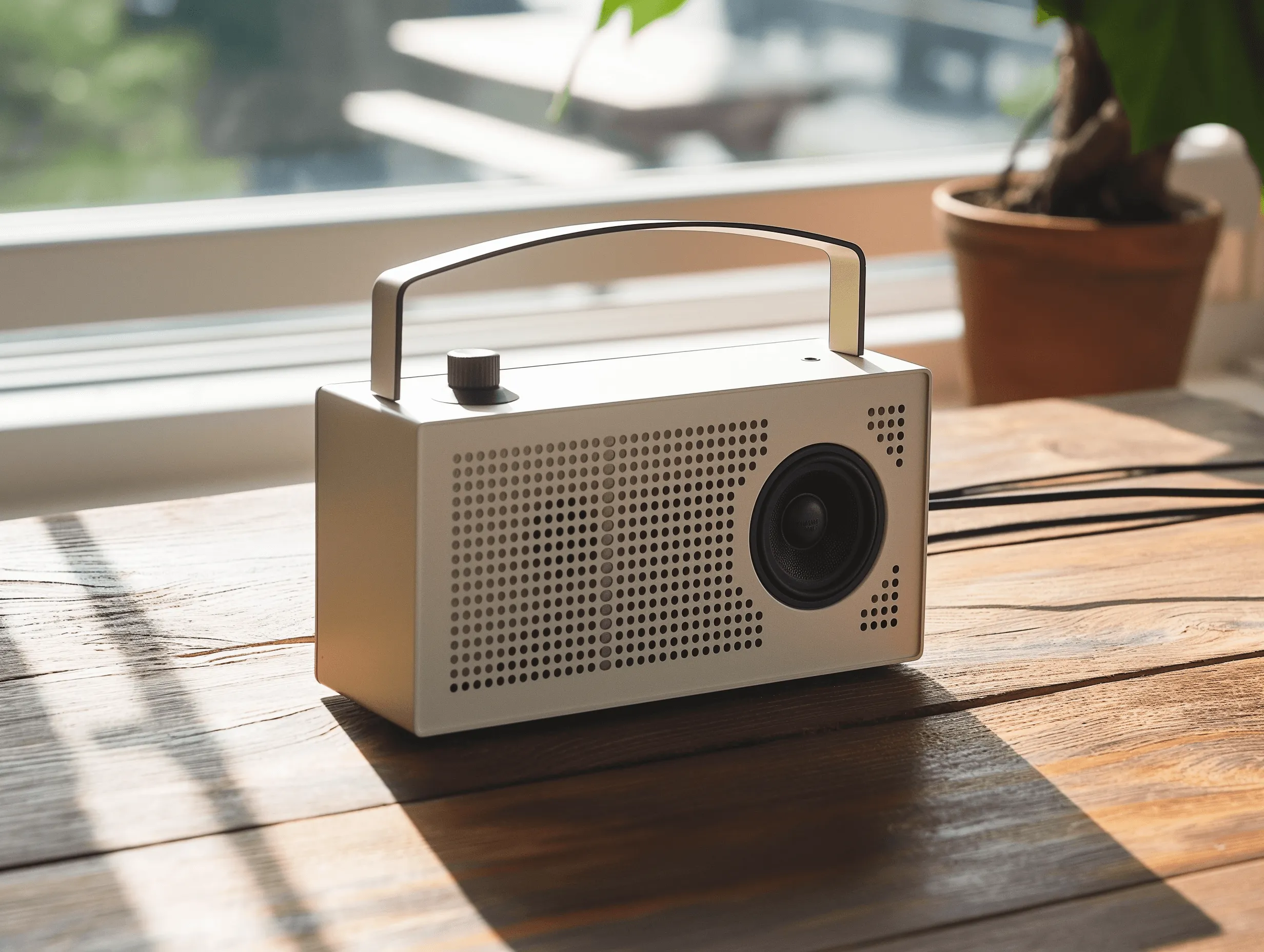
Tech Gurus Answer Your Nerd‑Level Questions
You know that moment when you're lying in bed scrolling through your phone at 2 AM, and suddenly you have this super specific tech question that's been bugging you for weeks? 🤔 Like, why does your smart vibrator keep disconnecting from the app, or how exactly does that fancy temperature-controlled couples' toy actually work? Yeah, we've all been there.
Here's the thing - the tech world has gotten *really* intimate lately, and honestly, it's about time. But with all these smart devices entering our bedrooms, we're left with questions that are way too awkward to ask your IT friend and too technical for your average sex educator to answer.
That's where tech gurus come in. These are the people who understand both the nitty-gritty of circuit boards AND the delicate art of pleasure technology. They're the unsung heroes answering your most pressing nerd-level questions about intimate tech.
The Rise of Intimate Technology
Let's be real - the intimate tech industry has exploded in the past few years. We're talking about a market that's projected to hit $52 billion by 2026, according to recent industry research. But with great innovation comes great confusion, especially when your high-tech toy starts acting up.
I've been following this space for years now, and tbh, the questions people ask have gotten incredibly sophisticated. We're not just talking about "how do I turn this on?" anymore. People want to understand encryption protocols, battery optimization, haptic feedback algorithms, and wireless connectivity standards.
Dr. Sarah Chen, a biomedical engineer who specializes in intimate technology, explains it perfectly: "Users today are incredibly tech-savvy. They want to understand not just what their devices do, but how they do it, why they make certain design choices, and how to troubleshoot when things go wrong."
Common Tech Questions That Keep People Up at Night
Ever wondered why your app-controlled device has that annoying 2-second delay? Or why some toys work perfectly with iPhone but glitch out with Android? These aren't just random bugs - there's actual science behind these quirks.
The most common questions I see fall into a few categories: connectivity issues, battery life optimization, data privacy concerns, and compatibility problems. And honestly, these are all totally valid concerns when you're dealing with something so personal.
Bluetooth Blues and Connectivity Chaos
Okay, let's dive into the technical stuff that actually matters. Bluetooth connectivity is probably the biggest pain point for smart intimate devices, and there's a really good reason for that.
Most intimate tech uses Bluetooth Low Energy (BLE), which is designed to preserve battery life. But here's where it gets tricky - BLE has a much shorter range than regular Bluetooth, typically around 30 feet in ideal conditions. Add walls, interference from other devices, and the fact that your phone might be across the room, and you've got a recipe for connection drops.
What I've learned from talking to developers is that many companies prioritize discretion over performance. They'll use smaller antennas or lower transmission power to keep devices compact and quiet, which directly impacts connectivity strength.
The Real Talk on App Performance
Here's something most people don't realize - the app is often the weakest link in the chain, not the device itself. I've tested dozens of these apps, and ngl, many of them feel like afterthoughts rather than integral parts of the experience.
The good news? Tech gurus are finally paying attention to user experience design. Companies are hiring actual UX designers who understand that intimate moments require seamless, intuitive interfaces. No one wants to fumble through three menu screens when things are heating up.
Battery Technology and Power Management
Battery life is where things get really nerdy, and honestly, it's fascinating. The challenge for intimate tech designers is balancing power, size, and performance in ways that traditional electronics don't have to consider.
Most high-quality devices now use lithium polymer batteries, which can be shaped to fit unique form factors. But here's what's cool - some companies are experimenting with wireless charging coils that can be integrated directly into the device structure.
According to research from MIT's battery lab, the optimal charging cycle for intimate devices is actually different from smartphones. Since these devices often sit unused for longer periods, they benefit from different power management algorithms that prevent battery degradation during storage.
Heat Management Gets Technical
Temperature control isn't just about comfort - it's about complex thermodynamics. The latest heating elements use PTC (Positive Temperature Coefficient) technology, which automatically regulates temperature without external sensors. Pretty genius, right?
What's really impressive is how engineers are solving heat distribution problems. They're using thermal mapping software typically reserved for aerospace applications to ensure even temperature distribution across device surfaces.
Data Privacy: The Elephant in the Room
Now we're getting into the stuff that really keeps tech gurus up at night. When you're dealing with intimate data, privacy isn't just important - it's absolutely critical.
The questions I get about data encryption are getting incredibly sophisticated. People want to know about end-to-end encryption protocols, local vs. cloud storage options, and what happens to their usage patterns and preferences.
Here's what most people don't realize: many reputable companies are now implementing zero-knowledge architecture, which means they literally can't access your personal data even if they wanted to. Your patterns, preferences, and usage data are encrypted with keys that only exist on your device.
The Technical Side of Discretion
Discretion in intimate tech goes way beyond just packaging and marketing. We're talking about sophisticated signal processing that can mask device signatures, frequency hopping to avoid detection, and even acoustic dampening technologies that reduce operational noise to below 40 decibels.
Some companies are using machine learning algorithms to optimize discretion based on environmental factors. The device can actually adjust its operational parameters based on ambient noise levels and time of day. It's like having a smart assistant that understands context.
Materials Science Meets Pleasure Technology
This is where things get really cool from a technical standpoint. The materials used in intimate tech aren't just about safety - they're about advanced engineering properties that most people never think about.
Medical-grade silicone isn't just one material - it's a whole family of compounds with different Shore hardness ratings, thermal conductivity properties, and surface treatments. Engineers are now customizing silicone formulations for specific applications, like creating materials that conduct heat efficiently while remaining body-safe.
Dr. Michael Rodriguez, a materials scientist who works with several major intimate tech companies, told me: "We're essentially creating custom polymers that need to meet biocompatibility standards while also serving as functional components in complex electronic systems. It's incredibly challenging and rewarding work."
Haptic Feedback: The Science of Sensation
Haptic technology has come so far from simple vibration motors. We're now dealing with linear actuators, eccentric rotating mass motors, and even ultrasonic haptic feedback systems that can create sensations without direct contact.
The really nerdy stuff happens in the software layer. Modern haptic engines use complex waveform generation to create incredibly nuanced sensations. We're talking about precise control over frequency, amplitude, and waveform shape that can create experiences that feel completely natural and organic.
What's fascinating is how companies are using biometric feedback to optimize haptic patterns. Some devices can actually monitor physiological responses and adjust their output in real-time. It's like having a responsive partner that learns and adapts.
The Future is Sensory Integration
The cutting-edge stuff involves multi-sensory integration. Engineers are working on devices that coordinate haptic feedback with temperature changes, audio cues, and even synchronized lighting. It's creating immersive experiences that engage multiple senses simultaneously.
Troubleshooting Like a Pro
When things go wrong with intimate tech, the troubleshooting process is often more complex than your average electronic device. These products need to work reliably in conditions that would challenge most electronics - moisture, temperature variations, and mechanical stress.
The most common issues I help people troubleshoot are firmware glitches, calibration problems, and sensor malfunctions. The good news is that many modern devices have built-in diagnostic modes that can identify problems and sometimes even fix them automatically.
Here's a pro tip from my experience: most connection issues can be resolved by understanding the specific Bluetooth implementation your device uses. Some work better with certain phone models, and knowing these compatibility quirks can save you hours of frustration.
FAQ: Your Most Technical Questions Answered
Why does my device keep disconnecting from the app during use?
This usually comes down to power management settings on your phone. Many devices use Bluetooth Low Energy, which your phone might disconnect to save battery. Try adjusting your phone's Bluetooth power management settings or keeping the app active in the foreground.
How do I know if my device's encryption is actually secure?
Look for devices that specify their encryption standards - AES-256 is the gold standard. Reputable companies will publish their security protocols. If they're vague about encryption or don't mention it at all, that's a red flag.
Can these devices interfere with other electronics in my home?
Most intimate tech operates in the 2.4GHz band, same as WiFi and many smart home devices. High-quality devices use frequency hopping and proper shielding to minimize interference, but cheap knockoffs might cause problems with your WiFi or other Bluetooth devices.
Why do some features only work with certain phone models?
This often comes down to differences in Bluetooth implementations and processing power. iPhones and high-end Android devices typically have more robust Bluetooth stacks and faster processors, which some advanced features require to function properly.
How long should I expect my device's battery to last?
Battery life depends on usage patterns, but most quality devices should maintain 70-80% of their original capacity after 2-3 years of regular use. If you're seeing significant degradation sooner, it might be a manufacturing defect worth addressing with the company.
The Community Aspect
What's really cool about the intimate tech community is how collaborative it's become. There are forums, Discord servers, and even Reddit communities where tech-savvy users share troubleshooting tips, firmware updates, and modification guides.
I've seen people create custom apps, develop alternative firmware, and even design 3D-printed accessories that enhance their devices' functionality. It's like the maker movement, but for intimate wellness.
The manufacturers are starting to embrace this community aspect too. Some companies now have beta testing programs where power users can try new features and provide feedback before public release.
What's Next in Intimate Tech
The future stuff is honestly mind-blowing. We're looking at AI-powered personalization that goes way beyond simple pattern recognition. Machine learning algorithms that can predict preferences, adapt to physiological changes, and even coordinate with partner devices for synchronized experiences.
Biometric integration is getting really sophisticated too. Heart rate variability, skin conductance, even micro-expression analysis through front-facing cameras. The goal is creating technology that responds to your body's signals in real-time.
And the materials science innovations keep coming. Self-cleaning surfaces, shape-memory alloys that can change form based on temperature, and even bio-responsive materials that react to specific biochemical markers.
Bottom Line 🔥
The world of intimate technology has evolved into something that would make any tech nerd proud. We've got sophisticated engineering, cutting-edge materials science, advanced software development, and genuine innovation happening in this space.
The questions people are asking have gotten incredibly technical, and honestly, that's awesome. It means users are engaged, informed, and demanding better products. The tech gurus answering these questions aren't just troubleshooting - they're pushing the entire industry forward.
Whether you're dealing with connectivity issues, wondering about data privacy, or just curious about how your favorite device actually works, remember that there's a whole community of technical experts who understand both the engineering and the intimacy sides of this equation. And btw, asking nerdy questions about your intimate tech isn't weird - it's exactly what responsible, informed users should be doing. Your pleasure deserves the same technical excellence as any other aspect of your life. ✨
.png)
.jpg)











Comments: